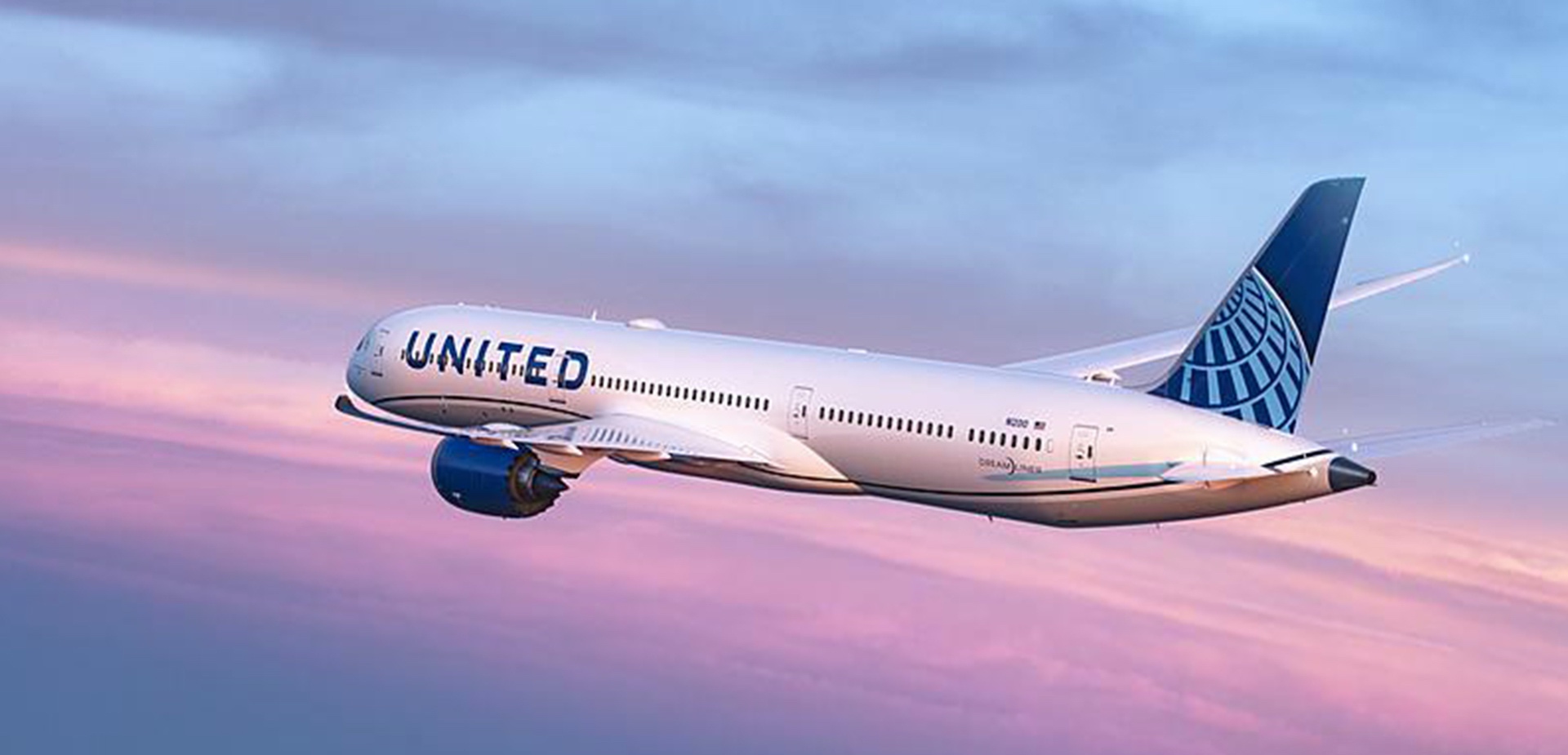A dismal forecast for aviation is projected in a letter signed by outgoing United Airlines CEO Oscar Munoz and incoming CEO Scott Kirby. With travel demand at “essentially zero” painful cuts are expected.
The nearly 1000-word letter accomplishes several purposes:
- Thanks Congress and the White House for passing an aid package for the airline industry
- Notes that United has never faced a graver challenge
- Warns further costs are necessary and coming
- Urges employees to take voluntary leave or separation
- Promises to maintain service to all destinations, though 90% of flights will be cut at least through June
- Reports that travel demand is essentially zero
- Speculates that travel will not return to “normal” even after travel bans and social distances mandates are lifted
- Tells employees that painful job cuts will be necessary in autumn
The tone is somber and pessimistic, predicting a slow return of demand and inventible job cuts in a new aviation landscape that is forever changed.
The Full Letter
Here’s the full letter sent to employees but also released to the world on United Hub.
To our United Family:
We hope all is well with you and your family. Two weeks ago, we hosted a virtual townhall and it was a valuable opportunity for us to connect with you all. And we’ve been really pleased with the response, more than 50,000 of you tuned in live or watched the broadcast on demand.
At the townhall, we discussed the impact of your calls and letters to Congress as they debated financial support for the airline industry. Washington heard you loud and clear, passing vital legislation that will provide commercial airlines with a total of $50 billion worth of grants and loans. We are grateful for the bipartisan cooperation displayed by leaders in the Congress and Administration — and appreciative of the critical role that you played. The thousands of letters and messages you sent, capturing the spirit of our United family and what our service means to our customers and communities, made all the difference in the world. We will need that spirit more than ever as we set our sights on the rest of 2020 and beyond.
The challenge that lies ahead for United is bigger than any we have faced in our proud 94-year history. We are committed to being as direct and as transparent as possible with you about the decisions that lay ahead and what impact they will have on our business and on you, the men and women of United Airlines.
Let’s start with the near-term. We now expect United to receive approximately $5 billion from the federal government through the Payroll Support Program under the CARES Act – to be used to protect the paychecks of our United employees. This government support does not cover our total payroll expense, but we’re keeping our promise that there will be no involuntary furloughs or pay rate cuts for U.S. employees before September 30. And, payroll only represents about 30 percent of our total costs. Fixed operating and non-payroll costs like airport rent, supplies and infrastructure are significant and not going away. That’s why we’ve been so aggressive in reducing our schedule, slashing capital expenditures, scaling back our work with vendors and consultants and cutting executive salaries in half.
We’re planning to go even further to reduce costs. This weekend, we’ll load a revamped schedule that will further reduce our capacity to about 10 percent of what had been planned for May at the beginning of this year. We expect to announce similar reductions to the June schedule in the next few weeks. We have now essentially redesigned our network to be down 90 percent while complying with the CARES Act and maintaining connectivity among nearly all our domestic destinations. And these May and June schedule reductions will have direct consequences for our frontline employees in terms of total hours worked. Those work groups can expect to hear more details from their leaders soon.
The more flexibility we have from a payroll perspective, the better. So, all work groups can expect to see a continued emphasis on payroll cost cutting options over the next few weeks including new voluntary leave offerings and voluntary separation programs. For those who are eligible, please consider signing up for voluntary COLA and ANP days. We’re grateful to the more than 20,000 employees who have already signed up. Your sacrifice is both deeply appreciated and important to our company’s future.
These schedule changes reflect the stark reality of our situation – and unfortunately, it’s something that even legislation as large as the CARES Act can’t fix. Travel demand is essentially zero and shows no sign of improving in the near-term. To help you understand how few people are flying in this environment, less than 200,000 people flew with us during the first two weeks of April this year, compared to more than 6 million during the same time in 2019, a 97 percent drop. And we expect to fly fewer people during the entire month of May than we did on a single day in May 2019.
The historically severe economic impact of this crisis means even when travel demand starts to inch back, it likely will not bounce back quickly. We believe that the health concerns about COVID-19 are likely to linger which means even when social distancing measures are relaxed, and businesses and schools start to reopen, life won’t necessarily return to normal. For example, not all states and cities are expected to re-open at the same time. Some international travel restrictions will remain in place. Meeting planners and tour operators will do their best to accommodate people looking to avoid large crowds. So, while we have not yet finalized changes to our schedule for July and August, we expect demand to remain suppressed for the remainder of 2020 and likely into next year.
So, let us end where we began, the government funding we expect to receive soon is helpful in the near-term because we can protect our employees in the U.S. from involuntary furloughs and pay rate cuts through the end of September. But the challenging economic outlook means we have some tough decisions ahead as we plan for our airline, and our overall workforce, to be smaller than it is today, starting as early as October 1.
Throughout this crisis, we have been candid and upfront with you. And today is no different. We appreciate the partnership and open dialogue we have with all of you as we confront this extraordinary situation that has had an unprecedented impact on our families and our company. We promise to continue to stay in close touch – and will continue to be as transparent as possible – in the weeks and months ahead.
Stay safe. Stay healthy. And please continue to take good care of our customers and each other. It’s because of you that we remain proud to be United Together.
Oscar and Scott
CONCLUSION
Most letters to employees are not broadcast to the public. The reasons for sharing this note publicly may be to help the public understand how bad the situation is, prepare the public for another bailout or aid request over the summer, or simply to express thanks, as the letter does, for taxpayer money supporting U.S. jobs through the end of September.
There are a couple of statistics in this note that are so alarming I want to dedicate a separate post to them. That’s coming next.
image: United Airlines





@ Matthew– Given how bad things are, why again do these two draw $20 million in pay? It is obscene. The budget for these two should be cut to $1 million apiece.
Gene,
At least the clowns at United (Scott and Munoz) have forgone their salaries this year, but Kirby Scott is a known card counter who is banned from casinos (google it) and Munoz has been handsomely paid the last couple of years – missing a paycheck for them won’t cause them to miss a meal.
This is going to make Government bailouts of Alitalia look like a walk in the park in comparison. There may be no choice to let them all fail and restart from the ashes.
I can’t see where more aid is going to come from for airlines given the SBA has announced even they don’t have the money for 30% of the claims coming in for small businesses. And our eight weeks verses airlines six months of payroll protection is an abomination in comparison. The American public is not going to stand for continued airline bailouts if everyone else has to collapse in order to save them. There is just not enough money for all.
Something drastic is going to have to happen. Whatever it is it’s very possible that regionals and small carriers will collapse and we will be left with only two airlines in the end. I mean, when Air New Zealand announces today they are shutting down their 777 operations until 2021 you know things are going from bad to worse.
United employee here !
So I agree with you … Over the weekend dozens of flights were added from EWR and IAH to the Caribbean and to Central America …ORD got a LHR back too .. We as employees were actually thinking … the light has finally shinned in the dark tunnel.
And then this email from Munoz and Scott dropped like a lightning bolt.
It has sunk the morale and confused everyone at same time; to an all time low. It’s a slow and painful death we are being put into. Some of us would prefer to get the axe now so we can move on with our lives, as a 30 year employee I don’t say that lightly.
A lot of us at United, for the first time in a long time see no out of this now … wow .. just wow – and not in a good way !
For the love of God why is United so hung up on still flying to the Caribbean and Central America ???; those countries are worse off than most (health, infrastructure, poverty, etc) even before COVID-19. Oh yeah, I forgot, …… still the CO mentality. Glad I’m retired (UA employee).
I think it’s directly related to this (pressure from a different angle): https://liveandletsfly.com/airline-bailout-whining/
While I don’t have a lot of love for United Airlines the corporation, I feel terrible for the many, many wonderful people who work there and at other full service carriers who’s business models I fear will be permanently impaired by what has just happened. Flying as we know it will never be the same again and the coronavirus really won’t have much to do with it.
Business travel will never get back to what it was because it has been permanently disrupted by teams, slack and the other connectivity tools even luddites like me have been forced to use and to appreciate during our lockdown experiences. I have no doubt the coronavirus will be done with, the economy will take off again and most of the things we’ve lost will come back but it will be much harder to make the case to spend 5-15k on a business class ticket to go to a meeting. Sure there will still be corporate travel but I think the justification bar to clear will be much higher. This drop in corporate spend on premium tickets will cascade into higher fares for everyone because they in effect subsidize coach travelers. Add to this possible higher fuel costs due to the collapse of the US shale industry and flying will become a more expensive proposition for everyone thats going to be primarily leisure driven. Airlines with little to no business travel exposure like WN and NK will recover much of their business. Full service carriers like UA, AA and DAL will struggle without dramatically changing their business models. Internationally, airlines with a good mix of leisure travelers flying premium cabins like EK and QR will also manage this new normal but others who also rely on corporate travel will find it difficult to survive without radical changes. Get ready for a very different future for flyers.
jetlaggedaf- Do you work for CNN or the Washington Post? Your gloom and doom posting is absurd. The airlines have been robbing the public with their booking, re booking, name change and asinine bag fees for years. If they want to survive, these bandits ,and they start at the top, will have to adjust their thieving pricing and pay. Using Southwest as a model will become the norm.